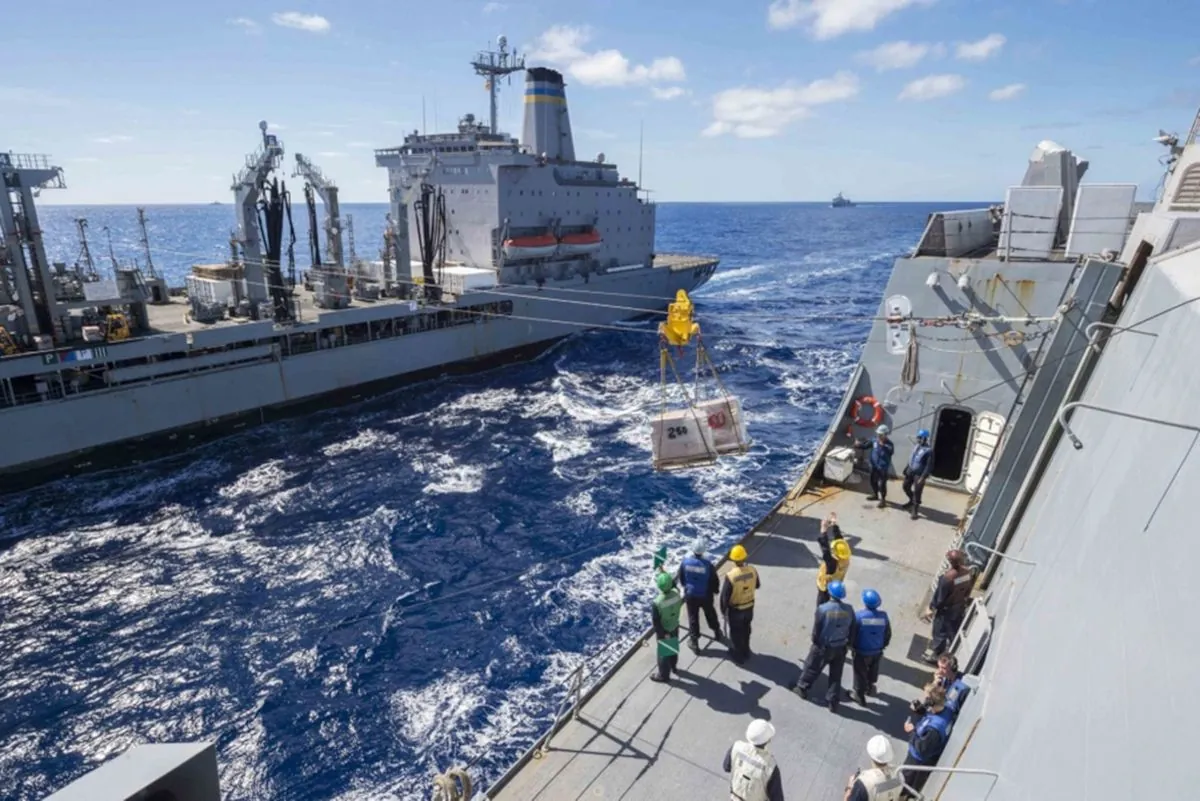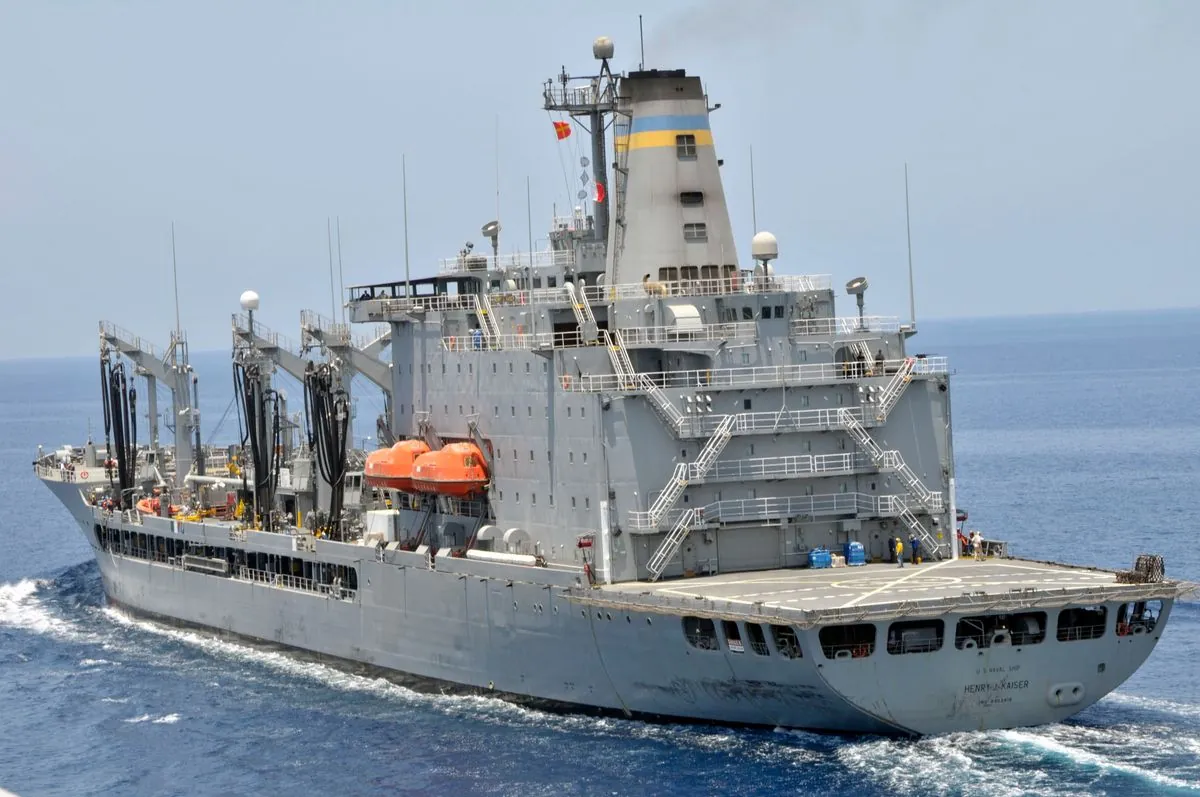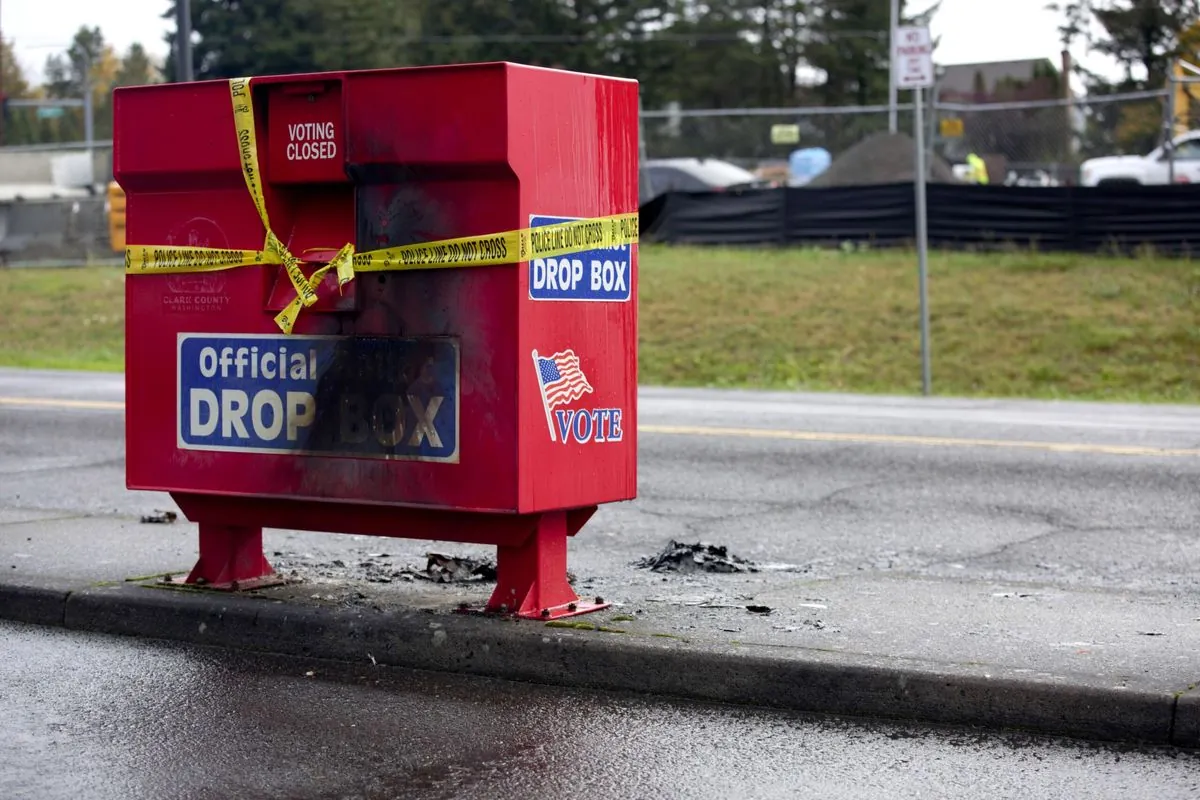U.S. Navy Oiler Damaged in Middle East Amid Regional Tensions
A U.S. Navy replenishment ship sustained damage in the Middle East, with the incident under investigation. The USNS Big Horn's crew is safe, and the vessel is being assessed amid ongoing regional conflicts.

In a recent development, the U.S. Navy has reported that one of its replenishment vessels, the USNS Big Horn, has sustained damage while operating in the Middle East. The incident, which occurred in September 2024, is currently under investigation, with officials refraining from disclosing specific details about the location or nature of the damage.
The USNS Big Horn, a Henry J. Kaiser-class underway replenishment oiler, plays a crucial role in supporting naval operations by providing fuel, lubricants, and other essential supplies to vessels at sea. This capability allows naval forces to maintain extended deployments without frequent returns to port. The ship's recent activities included supplying the USS Abraham Lincoln strike group, a Nimitz-class aircraft carrier that can accommodate over 60 aircraft and boasts a crew of approximately 5,000 personnel.
The incident occurs against a backdrop of heightened tensions in the Middle East, particularly in relation to the ongoing Israel-Hamas conflict, which began on October 7, 2023, nearly 11 months ago. Additionally, Israel's continued strikes targeting Hezbollah in Lebanon have further complicated the regional security situation.

A U.S. Navy official, speaking on condition of anonymity, assured that all crew members aboard the USNS Big Horn are safe. The vessel is currently being supported by private tugboats as a thorough assessment of its condition is underway. Importantly, there have been no reports of oil leaks from the ship, which has a capacity to carry up to 180,000 barrels of fuel oil and aviation fuel.
The U.S. Navy's presence in the Middle East, primarily through its 5th Fleet based in Bahrain, serves multiple strategic purposes. These include ensuring freedom of navigation, maintaining regional stability, and acting as a deterrent against potential adversaries. The region's significance is underscored by the fact that approximately 20% of the world's oil passes through the Strait of Hormuz, a critical waterway in the area.
The Military Sealift Command, which operates the USNS Big Horn along with approximately 125 other civilian-crewed ships, plays a vital role in supporting U.S. naval operations globally. These vessels conduct specialized missions and deliver supplies, enabling the U.S. Navy to maintain a continuous presence in strategic areas such as the Persian Gulf, where it has operated consistently since the 1980s.
As investigations into the USNS Big Horn incident continue, it serves as a reminder of the complex and often challenging nature of naval operations in the Middle East. The region, comprising 18 countries, has long been a focus of U.S. foreign policy and military operations due to its geopolitical importance and potential impact on global oil prices and trade.
The U.S. Navy's commitment to thoroughly investigating such incidents reflects its dedication to preventing future occurrences and improving overall safety in maritime operations. As the situation develops, further information about the USNS Big Horn's condition and the circumstances surrounding the incident is expected to be released at a later date.


































